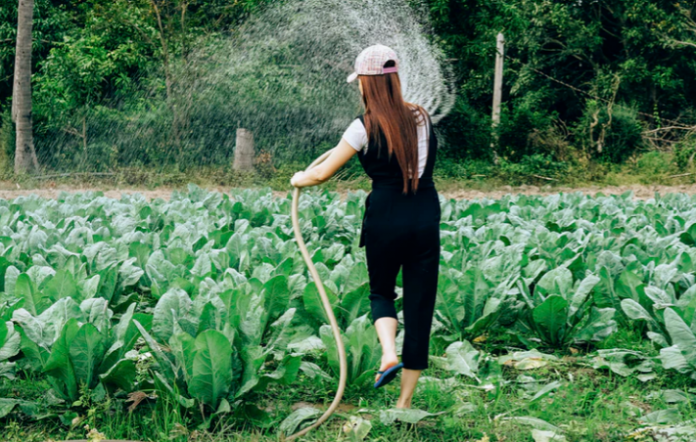The only difference between regular gardening and organic gardening is that no synthetic fertilizers or pesticides are used when gardening organically. It might be a little more work to grow plants this way, but it is well worth the effort.
The biggest problems with growing things organically are insects, disease, and weeds. But there are natural ways to protect your plants from these three killers.
Organic gardening starts with the soil. Rather than adding chemicals to the soil, organic gardeners regularly add organic matter in order to keep the soil healthy and productive. In fact, compost is essential to the well being of plants grown organically.
If you do not already have a compost pile or compost bin, one can be made with leaves, dead flowers, manure, fruit rinds, vegetable scraps, grass clippings, and many other things.
What you need is soil that is dark in color and that has a sweet smell. So be generous with the compost, choose a spot that drains well so that water does not just sit around the plants, follow the guidelines in this article, and your plants should stay healthy and productive.
You might have healthy soil to start with and only need to add some compost. But some soil might need more natural additives than compost provides.
Natural additives include things such as rock phosphates and bone meal. By purchasing and using a simple soil test you will know the soil’s pH balance and be able to determine which nutrients you need to add.
One of the things that make organic gardening more difficult is keeping insects off the plants. Most gardeners simply reach for a pesticide and spray the plants.
But organic gardeners who truly want to stay away from chemicals must find other alternatives. Instead of using pesticides, the best way to defend your plants from insects is to use preventive measures.
Since unhealthy plants are more likely to be attacked by insects, one of the best natural ways to protect your garden from insects is to make sure your plants are healthy.
There are several things you can do to encourage healthy plants. Keeping them not too wet and not too dry is one thing.
Another way to protect your plants from insects, however, is to encourage insect predators into your garden. These include:
lizards
ladybugs
frogs
birds
These creatures can be attracted to your garden by keeping a source of water nearby, such as a pond, and by growing plants that attract them.
There are also some household items that fight against insects, such as hot peppers and garlic, as well as insecticidal soaps.
Many diseases spread because the site of the garden does not drain well or does not allow for good air circulation. Another way to prevent disease is to start with disease-resistant plants and plant them in their prime.
Besides diseases and insects, another annoying and frustrating problem faced by organic gardeners is weeds. Organic mulch can act as a weed barrier, but for even better protection put a layer of cardboard, construction paper, or newspaper under the mulch.
Spreading a layer of cornmeal gluten to slow the growth of weeds is another idea. Do this early in the season before planting.
Lastly, for weed control, there is also the trusty hoe. Regular hoeing and hand pulling the weeds will help a great deal, and it requires no sprays that can hurt your family or the environment. Overall, persistence will beat the weeds for good after a few seasons of hoeing and pulling.
Organic gardening is an excellent way to assure that your plants will be free and clear of all pesticides and, if taken care of properly, will be as healthy as possible.
Organic gardening may require more time and care than regular gardening, but your family and the environment will greatly benefit.

